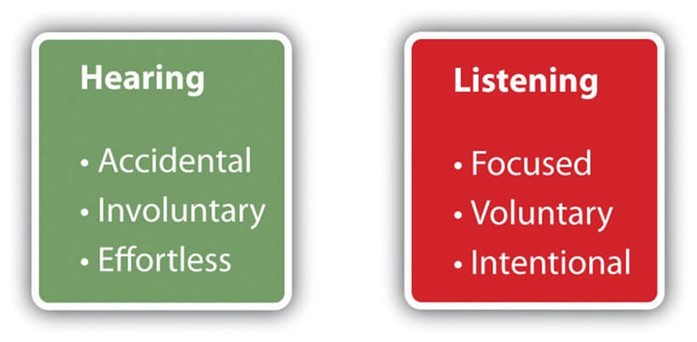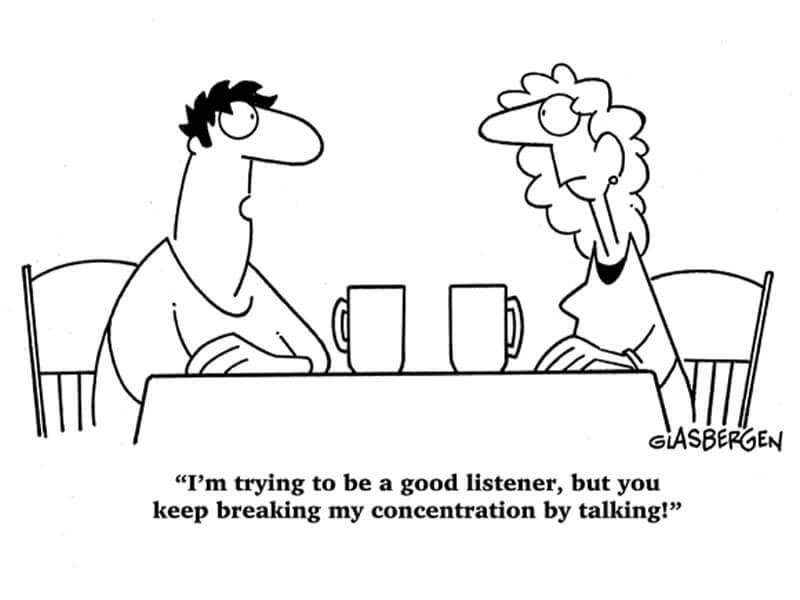
Listening vs hearing
By George Moraitis
Have you ever been accused by someone of having ‘selective hearing’?
“You only hear what you want to hear!”
My wife constantly complains that I never listen to her… or something like that…
Recently I spent some time with a dear family friend. Theo is 84 years old and in days gone past was a professional pianist/organist. In fact, he played in a band with my father for almost 20 years and whenever he visits us, he loves coming into my listening room, rubbing his hands together, asking “what are you going to play for me today George?”.
I cherish spending time with him, not only because he’s a kind, interesting person with a wealth of life experience but he’s also wonderfully talented in the rare art of telling a great story. From time to time, I have the privilege of hosting him in my room, playing a few records and being captivated by the stories that flow, hanging on to his every word.
He keeps telling me that there’s no use for him to spend money on nice equipment because he’s lost most of his hearing, especially the high frequencies. He often says that he loves listening to music with me even though he can’t appreciate the sound quality. Yet when we listen to music, his observations and insights are incredible! During our latest session, he reacted to some subtle details and nuances in a track that I had never noticed.
I realised that despite the fact that Theo’s ability to hear is deteriorating, he has an acute ability to listen to music which connects him to the musical message in a profound and emotionally engaging way. Despite his belief that a high-end audio system would be wasted on him, in reality his ability to listen with a trained ear to the music in a deeper, more analytical way indicated that in practice, the very opposite is true.
As appreciators of music and great sound, having an awareness & understanding of ‘how to listen’ may help us to enhance our experience of music to greater and more enjoyable heights. So what’s the difference between hearing and listening?

According to the Merriam-Webster dictionary, hearing is defined as the “process, function, or power of perceiving sound; specifically: the special sense by which noises and tones are received as stimuli.”
Listening, on the other hand, means “to pay attention to sound; to hear something with thoughtful attention; and to give consideration.”
These differences are profound. To expand a little further, hearing is a passive, involuntary and sensory process in which we perceive sounds. It is a physiological response that involves our perception of sound. It does not require focused attention. For example, if you’re watching television, you can still hear the sound of traffic outside, your dog barking in another room or people laughing in the hallway.
Listening is an active, voluntary, and intentional process that involves making sense of the words and sounds you hear; it requires your attention. In turn, you may develop an emotional response to what you hear. Listening with the intent to understand is referred to as ‘active listening’. For example, if someone you care about tells you about a serious health problem they’re experiencing, you will probably have your full attention focused on them. As they speak, you will start to understand what their experience is like and the impact it is having on them.
Another way of looking at it is that we hear with our ears but we listen with our mind.

How can we develop critical listening skills?
We can develop our ability to listen deeper into our music by training our mind to concentrate on individual characteristics of the presentation, increase our sensitivity to those characteristics and observe the relationships between the individual characteristics and their contribution to the whole, or collective.
We can ask relevant questions about aspects of the sonic presentation or aspects of the musical performance and explore our perceptions. What are we feeling? Is it convincing? Why?
We can practice these techniques and in time, they will enhance our sensitivity to the various details in a way that becomes familiar and then when we are listening to the ‘whole’, we are simultaneously aware of the constituents, or threads. For example, does the fullness of the existing bass note produced by the bass guitar diminish when the drummer hits the bass drum?
Here’s some questions that you can explore while listening to music that will help develop your critical listening skills. The development of ‘our ear’ happens during our contemplation of these types of questions:
- If you close your eyes and imagine the band playing in front of you, what is the stage width, height and depth? Does it feel realistic or unnaturally small/big? It needs to be a natural, believable size with the singers & performers at a believable height on the stage.
- Does the singer sound like a real living human being with a voice, a chest & throat? Or like a copy of a live performance through a hi-fi speaker system?
- How many people are playing this music? (Check the album’s liner notes) Can you hear all of them all the time? You need to be able to identify them all the time, even when the music gets busy.
- Can you pick out the melody each instrument is playing and are they all playing in time?
- Can one person or instrument get louder without the whole band getting louder? This should be able to happen but most hi-fi systems find this difficult to do.
- As the notes get louder and higher, do the instruments tend to move about? They shouldn’t change position.
- Does the singer’s presence continue to exist in between verses?
- Are there any backing vocalists? If so, how many?
- Can you hear the musicians start and stop playing their instruments or are the instruments seemingly playing themselves?
- What instrument is producing the bass? Is it a bass guitar, a double bass or a drum machine/software? It the bass melodic or one note?
- On a piece of music that starts with a bass guitar line, when the rest of the band comes in does the bass component get quieter? It should stay the same but most systems compress this.
- If a guitar is playing, is the guitarist using a plectrum or picking with their fingers?
- Is there a rhythm guitar? Is it playing all the time or does it disappear when the rest of the band gets louder?
- Is the rhythm guitar as important to the mood & emotion of the music throughout the whole track?
- Can you hear the hi-hat when the drummer hits the bass drum or is it obscured?
- Does the timbral quality of the instruments sound natural & real. For example, does the piano sound like a REAL piano with natural attack and decay?
- When listening to choir, do the singers stay the same size all the time or does each individual singer appear to get smaller when more singers sing?
- What is the emotional intention of the music? Is it being communicated in a way that is engaging your emotions? This is really important! Connect your analytical concentration that is cognising the sound to your emotions, memories, feelings. Has the music mixed with your feelings or is it separate?
- If it was possible to speak to the artist or composer, would you want to speak to them? What would you say? Does the music make you wish that you could speak to them?
- Is the intended drama in the music being conveyed or does it feel forced, diminished or boring?
- Are you fully engaged to the music with your mind and body? Feeling it in your heart?
- Are you fully enjoying the music or has your mind moved to the sound of the hi-fi? This is the ultimate test of the believability & engagement of a system. Have your forgotten that you are sitting in front of a hi-fi system and are ‘in your own world’?
In our moments together, listening to music with Theo has taught me that ‘listening’ was more of a learned skill than an innate ability determined by physiological assets. It has to do with choosing to dive deeper into the musical presentation with a distinctly human emotional lens – to experience the artform. The subtleties that a high-end system can deliver should not be thought of as exclusively high-resolution events requiring 20Hz – 20kHz hearing to recognise and appreciate.
Rather, a great system reveals a multitude of aural delights easily perceived and enjoyed by people with a broad range of hearing. It’s about suspending the notion that we are hearing a presentation of a recording and in that moment, letting go and experiencing the performance with all of your senses – a visceral, palpable experience of music.
Next time you fire up your system, take a moment to contemplate these points and share your thoughts with us.
Do you hear the music or are you ‘listening’?
